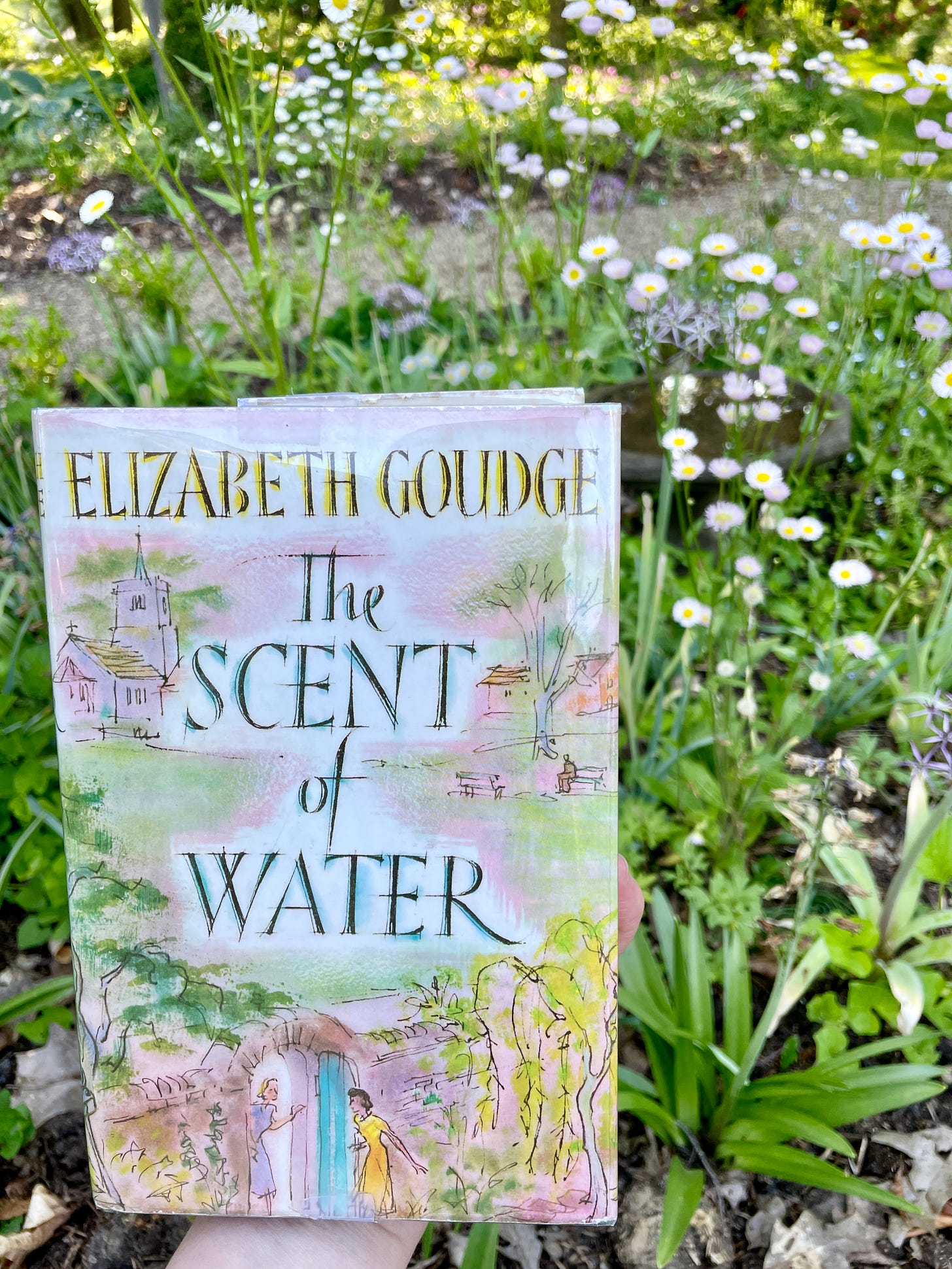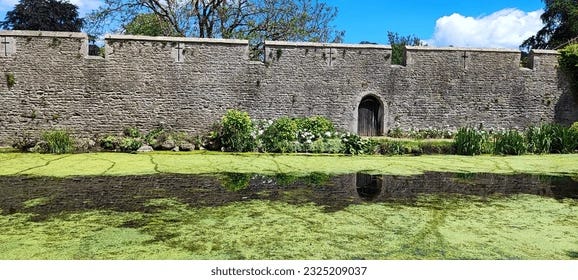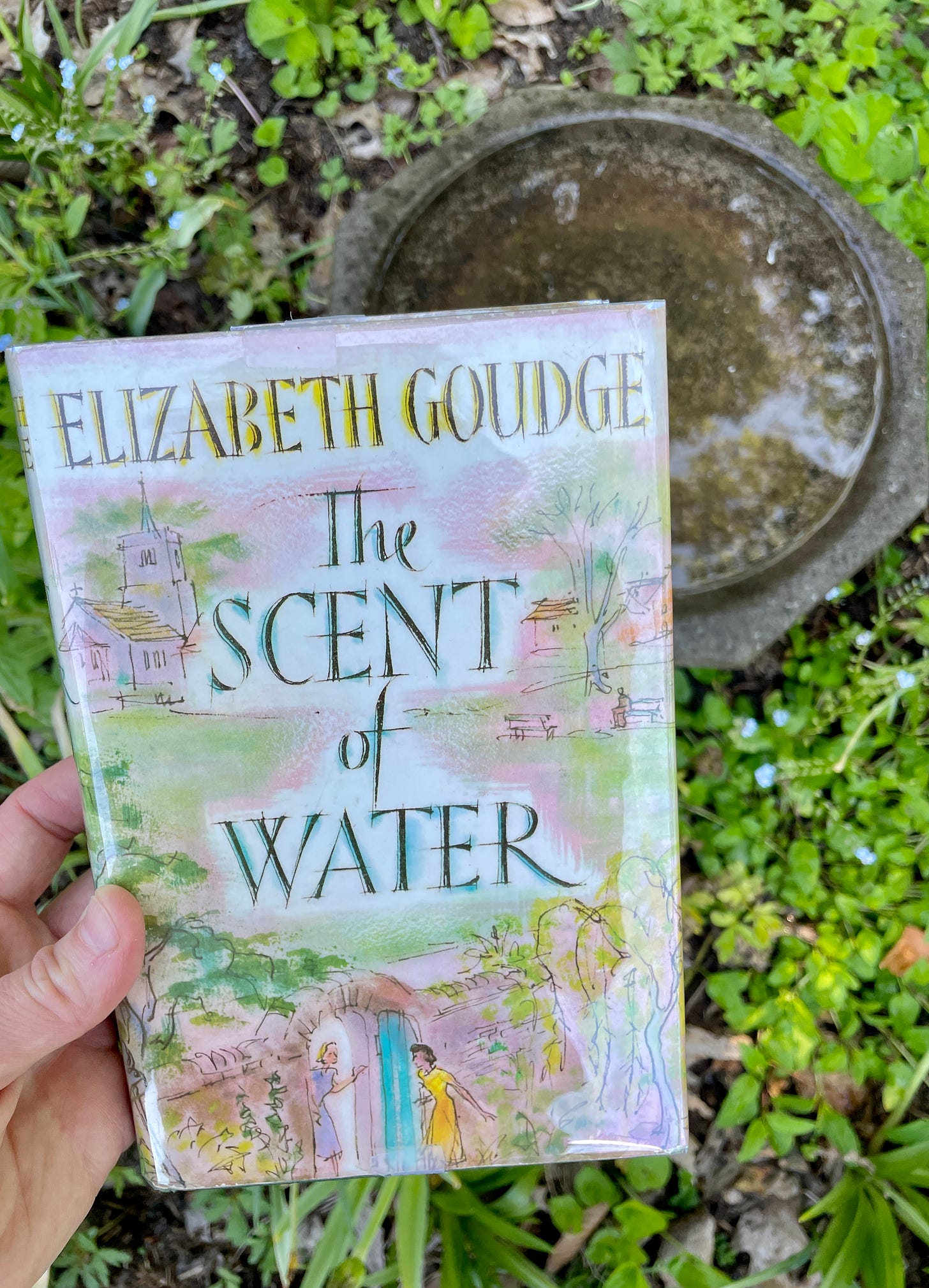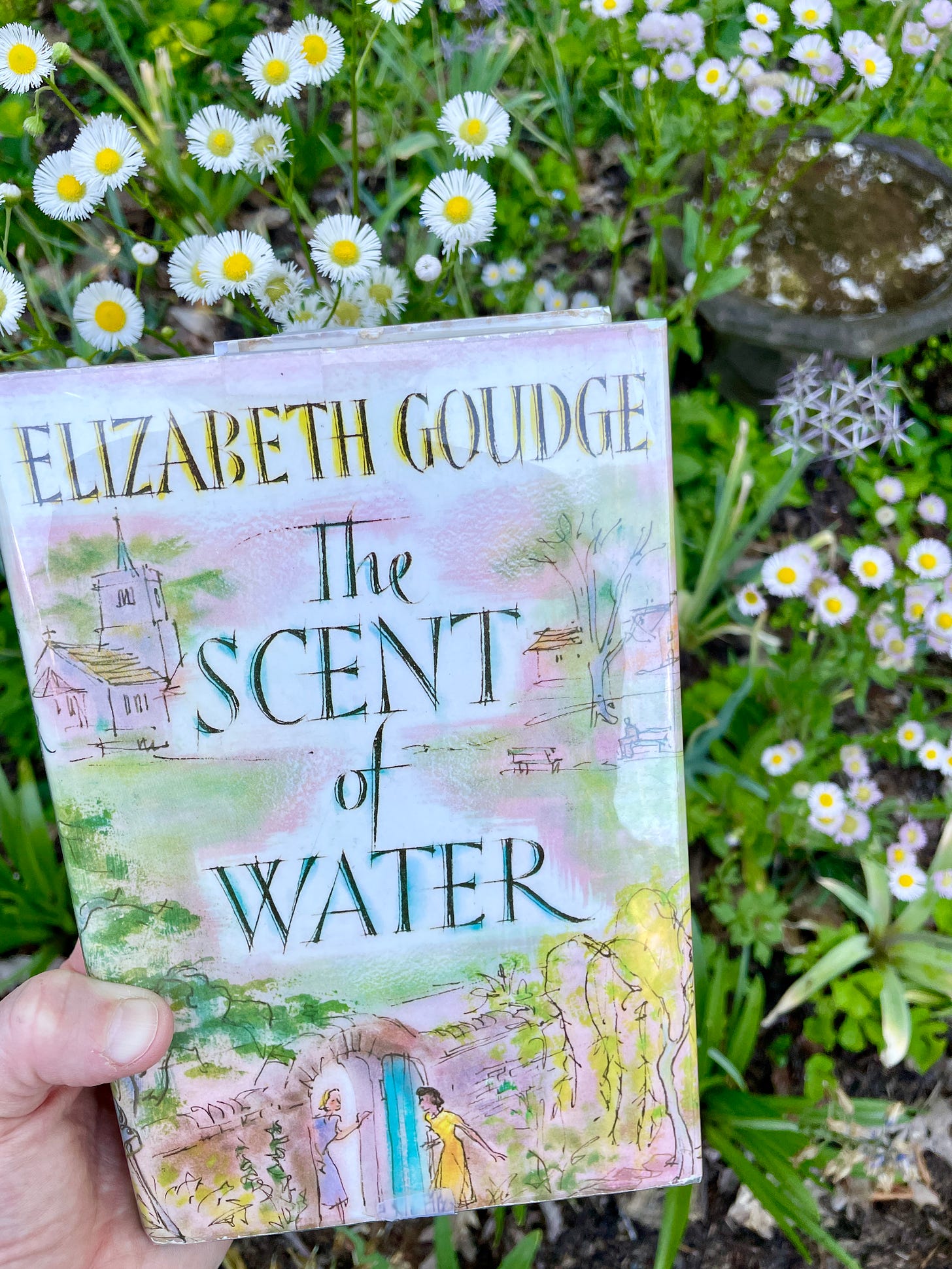The Scent of Water: Week 3
Doorways with Goudge
“I like old things,” (Edith said), “like the tree in Nightingale Wood, the one by the ruins of Fox Barton, where the well is."
Mary was delighted. One of the joys of being with children was that in their company one recaptured the sense of the strange and the flavor of the unknown…
"Is Nightingale Wood the one beyond the Dog and Duck?" Mary asked.
"Yes, but Fox Barton is at the other end of it. The way to Fox Barton is down Ash Lane. You know Ash Lane because the door in your vegetable garden leads into it." It was the door through which Mrs. Baker came and went but Mary had been so busy that she had actually never explored beyond it…
As they walked under the apple trees in the kitchen garden to the door in the wall Mary did not tell Edith that she had not yet found time to open it and go through it to what lay beyond…
Mary was ashamed of the procrastination of her advancing years... It was an inwardly humbled woman who preceded Edith into Ash Lane…
🌿The Scent of Water by Elizabeth Goudge
Our live book chat for The Scent of Water will be on Wednesday, May 29th at 3pm EST. Hope you can make it! Link below.
Doorways to the unknown
All through Goudge’s stories, you find places where the characters suddenly find magical places through the common doors in front of them. This happens not just in her fantasy, like The Little White Horse which we will read in June, but also in her historical fiction which is set in real, sometimes gritty, life.
In Towers in the Mist, which we read in February, young Faithful Crocker finds the rainbow and a pot of gold in the dirty basements of Oxford, as well as the gift of faith.
In Pilgrim’s Inn (aka The Herb of Grace), which we read together in December, the twins find the hidden chapel in the pantry cupboard, obscured by several coats of old wall paper.
In The Dean’s Watch, which we read in November, the Dean finds the mystery of faithfulness, clocks, and time hidden behind the metal cover on his pocket watch and Isaac finds his faith behind the cathedral doors that he passed all his life.
Muddy mysteries
The Scent of Water is no different. Here the doorway to Mary’s mystery begins in the most common of places: her own vegetable patch. She and Edith must have walked by the seed trays, the compost pile, and the snail-eaten lettuces.
It was here in the most common of places that Goudge chose to have Mary walk into her dream (half-awake no less) and find what she was looking for in the most unexpected of places: a ruined house, a well and an old woodland.
Goudge’s childhood door
A couple of chapters later, Mary talks more about finding out the marvelous through a doorway that starts in a very common, ordinary place:
“Life was full of these intuitions that one must get smaller, go further in. The golden box was so deeply within that it was hard to find, yet it contained an entire country and was, she supposed, the only luggage one could take with one if there was anywhere to go beyond death. For much of her life she had believed there wasn't, yet in this place she had had so many intuitions of a door. The lime trees in the avenue, guarding the abbey gateway that could no longer be seen yet was still there. The door in her own garden wall that had seemed to her as a child to be the entrance into the inner world of a picture. And often in dreams she had opened a familiar door and found beyond not what she was expecting but something so beyond description that it could not be accurately remembered on waking, though it held one all the following day like light. Dreams were all nonsense, people said, but she had come to believe there was sometimes a true thread woven through the muddle. Have I come to believe there is a door? she asked.” Ch 11
This description reminded me of reading in Goudge’s autobiography, The Joy of the Snow, that as a child she had her own key to the door in the garden wall at the Bishop’s Palace in Wells, UK:
Such a place would have certainly inspired a creative mind! It, and perhaps the doors that surround each little garden in the Close at Wells, seemed to have been the inspiration for all that she wrote about common doors taking you to fantastic new places.
And who is the best to lead us there?
For Mary, it was Edith who was sent to help bring her out of her too busy, to comfortable adultness. And getting her out the door is not all that Edith does for Mary…
Children as our teachers
I love that when they talked about going on their walk, Mary insisted on it being a nature walk. But when they actually leave, Mary is a half-awake dream state from her nap and we are told:
“Ash Lane was narrow and deeply sunken between steep banks crowned with hollies and hawthorns, with a big ash tree not far from Mary's gate. As it went only to the woods, the hedges had not been cut down and the trees arched overhead. Ancient and bird-haunted, the place imposed a silence and Edith spoke only to point out to Mary treasures that she might have missed, the rose color of a chaffinch's breast in the as branches over their heads, a butterfly, long-stalked toadstools of pale lavender growing among the wet mosses in the ditch and trails of creamy wild roses and honeysuckle. Now and again there was a break in the trees upon each side, a window that showed a glimpse of sunlit fields and far blue hills..” Ch 9
Goudge reminds us yet again that children are often our teachers, especially because of their curiosity about the world around them.
It reminds me of what GK Chesterton famously said in Orthodoxy:
“Because children have abounding vitality, because they are in spirit fierce and free, therefore they want things repeated and unchanged. They always say, "Do it again"; and the grown-up person does it again until he is nearly dead. For grown-up people are not strong enough to exult in monotony. But perhaps God is strong enough to exult in monotony. It is possible that God says every morning, "Do it again" to the sun; and every evening, "Do it again" to the moon. It may not be automatic necessity that makes all daisies alike; it may be that God makes every daisy separately, but has never got tired of making them. It may be that He has the eternal appetite of infancy; for we have sinned and grown old, and our Father is younger than we.”
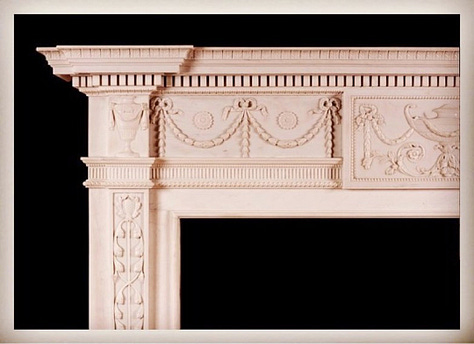
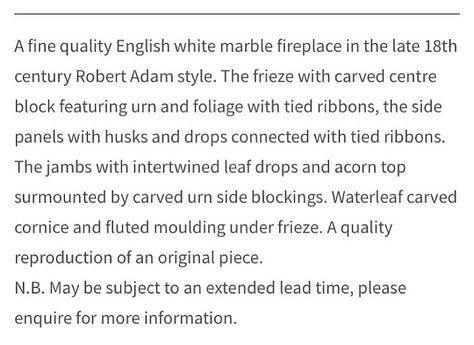
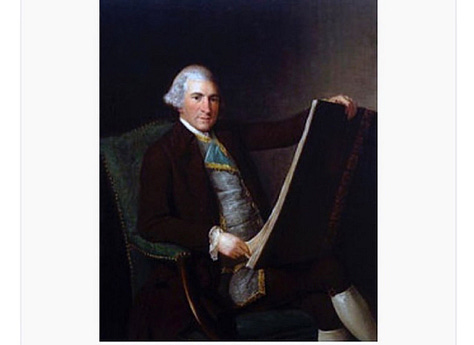
[Fireplace photo & description: Thornhillgalleries.com; Adams Info: Wikipedia]
Adam’s Fireplace
The day Mary finally made it to Fox Barton, she discovered in the living room:
“The remains of an Adam fireplace... a plaster garland of flowers still clung above the fireplace and she picked up a fragment that had fallen to the floor. It showed a flower with a bee hovering over it. She held it in her hands and looked at it, grieving for vanished loveliness... why grieve because a fragment of fine living had passed away in a small house in a small wood, upon an unimportant planet lost in the vastness of space? The myriad stars remained. And for the moment Mr. Baker’s chair legs, and the slanting sunbeams and the shavings on the floor. Beauty not so much vanished as dissolved and itself reshaped, as she had seen the reflected clouds reshaping themselves behind her when she had leaned over the well.” Ch 9
Elizabeth Goudge uses this crumbling piece of architecture to show us the transient but persistent nature of beauty in our world. And it made me wonder a bit more about the man for whom its style is attributed!
Robert Adam lived from 1728-1792, and created a “reformed” Neoclassical style that he hoped was more true to the style of Greece & Rome. In addition to the many buildings and churches he designed, he also worked with Thomas Chippendale, whose furniture would have graced the most stylish homes of Jane Austen’s day.
“She was less tired than she expected, the cool beauty of the lane affecting her like a drink of water…”
Elizabeth Goudge, The Scent of Water, ch 9
Questions:
🌿If you could visit Appleshaw, where would you go first?
🌿Is there a character that has surprised you or made more sense to in as the story proceeds?
Love to hear!
Zoom Link for Live Book Chat on Wednesday, May 29th at 3pm EST.
Link Below:
Keep reading with a 7-day free trial
Subscribe to Elizabeth Goudge Bookclub’s Substack to keep reading this post and get 7 days of free access to the full post archives.



